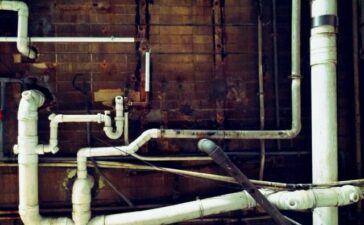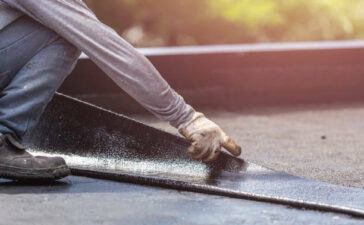An air conditioner maintenance checklist keeps your AC unit in top condition. You know what to do and when, so you avoid expensive repairs. Some of the tasks are easy DIY, while others require the help of a professional.
Do You Have an Air Conditioner Maintenance Checklist?
However, before attempting any repairs, always consult the professionals. They will know what is best for your unit. A good air conditioner maintenance checklist includes the following tasks:
Change The Air Filter Regularly
Ellicott City air conditioning experts will advise you to change the air filter every 1-3 months. A dirty air filter will make your AC unit work harder. Go for one with a higher MERV (Minimum Efficiency Reporting Value) rating to capture more airborne contaminants. HEPA filters are the most effective and suitable when concerned about allergies, pet dander, or smoke.
Keep The AC Unit Clean
The coils and fins on the AC quickly become clogged but are essential for proper heat transfer. Use a brush or blower to remove any dirt and debris. Call a professional to clean them for the best results and to protect the system.
Trim Vegetation Around The Unit
Trees, bushes, and other plants can block airflow to the AC unit. Trim them back to ensure proper airflow and prevent system damage. As you do this, be careful not to damage the unit. Check whether it’s level and, if not, use shims to level it. An unlevelled AC will work harder and may not operate as efficiently.
Check The Freon Levels
Freon is a refrigerant used in AC units to cool and dehumidify the air inside your home. A professional should check the levels in your AC unit every year. A low Freon level indicates a leak, which can cause extensive damage to the system. Always have leaks repaired immediately to avoid further issues.
Inspect and Clean The Ductwork
Dirt and debris accumulate in the ductwork over time, affecting the air quality in your home. Inspect the ductwork regularly and have it cleaned by a professional every few years. This improves the unit’s efficiency. Check for any gaps, cracks, or holes and have them sealed to prevent air loss. Also, make sure the vents are not blocked. Move furniture, if necessary, to create unobstructed airflow.
Check For Strange Noises
Strange AC unit noises always signify potential problems. Check the fan blades if they’re hitting something. If they are, adjust, so they spin freely. If you hear strange noises from the compressor, it may be time to replace it. Call a professional if you’re not sure what’s causing the noise.
Watch For Strange Odors
If your AC unit emits musty or burning smells, shut it down immediately and call a professional. These smells usually indicate electrical problems that can be dangerous. Do not attempt to repair the unit yourself. Possible problems are a burned-out capacitor, loose wiring, or a failed motor. Let a professional diagnose and fix the issue.
Check The Thermostat
Check the batteries and, if necessary, replace them. Also, clean the thermostat and check for loose wires. If the issue persists, call a professional to calibrate the thermostat.
Test the AC Before You Need It
It’s always best to test the AC unit before the start of the cooling season. This way, you can identify and fix any issues before they cause discomfort in your home. Turn on the unit and check for strange noises or smells. Also, check that all the vents are open and the thermostat is working correctly. When everything is in order, congratulations. Your AC unit is ready for another season of keeping your home cool and comfortable.
Hire a Professional For Maintenance
The best way to keep your AC unit in good condition is to hire a professional for regular maintenance. They will inspect and clean the unit and oil the movable parts. This prevents potential problems and keeps the system running efficiently. Do this annually or sooner if you notice any issues.






